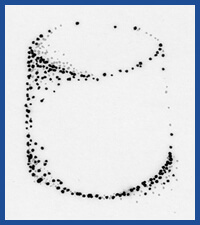A Delayed Post on Delayed Gratification…
Written by Sandie Barrie Blackley, Speech-Language Pathologist
Published on March 7, 2012

When I read “Don’t! The secret of self-control” by Jonah Lehrer in the May 18, 2009, New Yorker, I wanted to write something about it immediately. Not only is the research fascinating and important but also Lehrer’s writing is simply terrific! Rereading the article today, I’m happy to discover it is just as timely and important, so, with my apologies for the delay, here are a few thoughts.
The article is about delayed gratification. Lehrer opens by describing a 1960s Stanford University experiment conducted by Walter Mischel in which children were asked to choose between immediate gratification (eating a marshmallow) or holding out for a bigger treat (two marshmallows).
Lehrer’s descriptions of the children’s struggles are poignant and will be recognizable to anyone who’s ever been around (or been!) a kid. Some of the children managed to set aside the impulse to grab the marshmallow by what Mischel calls strategic allocation of attention, a term that seems particularly apt. It suggests how success can be achieved — by paying attention to some things and not paying attention to others — and is much more helpful than the term self-control, which implies some sort of character defect that requires fixing.
Later, “Mischel began to notice a link between the children’s academic performance as teen-agers and their ability to wait for the second marshmallow.”
As people perform tasks and make decisions, they rely on their working memory, “the relatively limited amount of information we’re able to consciously consider at any given moment,” as Lehrer describes it. If their working memory is impaired — or if they are constantly distracted or derailed by internal urges or thoughts (desire for the marshmallow) — they have a much harder time completing tasks.
We may think of such distractibility as a symptom of ADHD and many clients are referred to us with a diagnosis of Attention Deficit Hyperactivity Disorder. But within a few sessions, it becomes clear that they can allocate their attention when we provide carefully adjusted practice that does not overwhelm their language processing.
One of the things that we do in Lexercise therapy is use the online reports of clients’ Lexercise game scores to look at a child’s response consistency. We look for consistent accuracy, which is essential for building any skill. If the child is distracted or has impaired working memory, then consistent accuracy (and improved language processing skill) will be elusive.
Most of the time, fortunately, the feedback and points provided by the Lexercise games are enough to teach the child how to deploy strategic allocation of attention and reach consistent accuracy and fluency. This mastery of skills can then be applied to real-world reading and spelling.
Lehrer’s article concludes with a discussion of more recent studies to evaluate whether and how the strategic allocation of attention can be taught to children and might have long-term benefits well into adulthood.
I encourage you to read the article and to contact me at Info@Lexercise.com or 1-919-747-4557 if your child struggles with reading, writing, or spelling. You can also take one of our Free Online Learning Evaluation Tests or connect with one of our expert therapist partners.
Improve Your Child’s Reading
Learn more about Lexercise today.
Schedule a FREE
15-minute consultation


